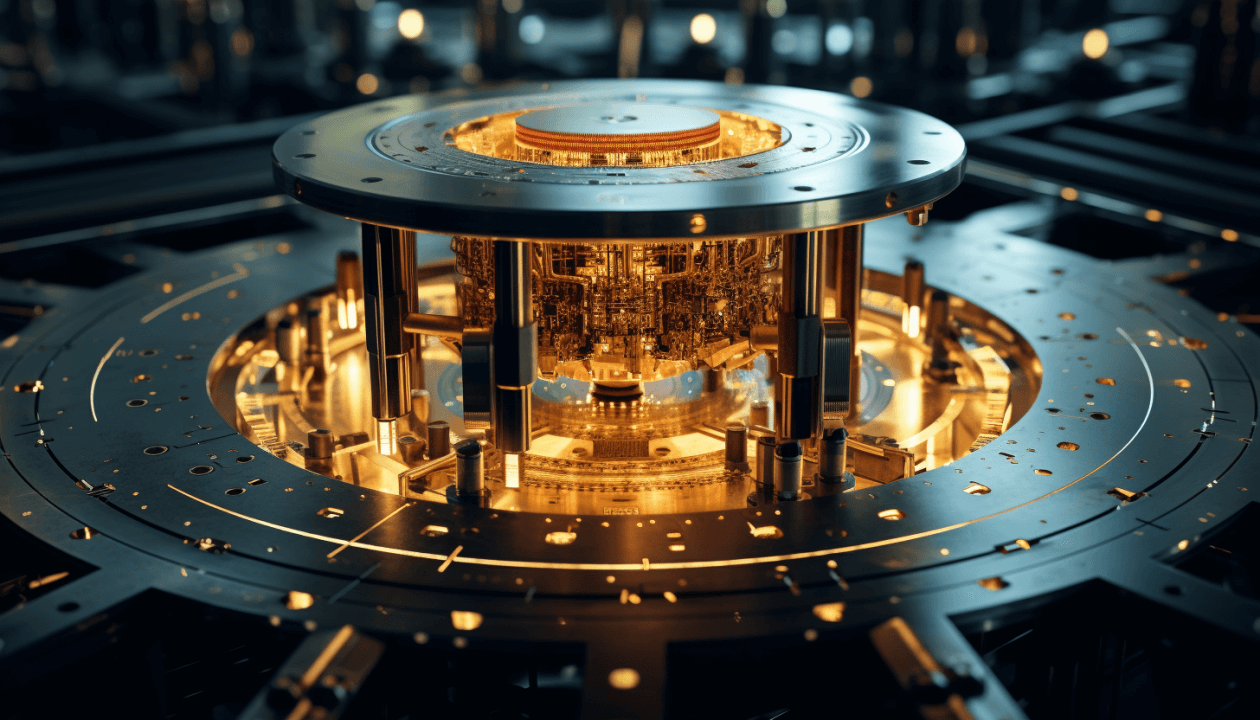Quantum AI: Revolutionizing Technology with Quantum Computing
In a world teetering on the brink of technological miracles, Quantum AI emerges as a beacon of hope and innovation. It’s not just a new gadget in the tech arsenal; it’s a paradigm shift, promising to unlock achievements that have long been in the realm of science fiction. But what exactly is Quantum AI, and why is it creating such a buzz? Let’s dive deep into this intriguing confluence of quantum computing and artificial intelligence, shedding light on how it’s poised to revolutionize everything from healthcare to cybersecurity, and even the way we tackle climate change.

Understanding Quantum AI
At its core, Quantum AI is an interdisciplinary marvel that harnesses the principles of quantum mechanics to enhance the capabilities of artificial intelligence. Quantum computing, the powerhouse behind Quantum AI, operates on the principles of superposition and entanglement. Unlike classical bits, which are either 0 or 1, quantum bits (qubits) can be in multiple states at once, thanks to superposition. This allows quantum computers to process vast amounts of data at an unprecedented speed.
The Quantum Leap in Machine Learning
Machine learning, a subset of AI, is all about teaching computers to learn from data to make decisions or predictions. With classical computers, there’s a limit to the complexity of problems that can be solved within a reasonable timeframe. Enter Quantum AI, which turns this limitation on its head. By leveraging quantum computing, machine learning algorithms can run more efficiently, tackle more complex datasets, and achieve higher accuracy levels. This isn’t just improvement; it’s transformational change.
Revolutionizing Industries
Quantum AI isn’t just about faster computing; it’s about opening doors to new possibilities. Here are a few sectors where Quantum AI is set to make a significant impact:
- Healthcare: Imagine discovering new drugs in a fraction of the time and cost it takes today. Quantum AI can analyze molecular structures and biological processes with such precision that it could drastically accelerate drug discovery and personalized medicine.
- Finance: Financial markets are complex and volatile. Quantum AI’s ability to process and analyze vast datasets can help in predicting market trends, managing risk, and optimizing portfolios with unprecedented accuracy.
- Cybersecurity: With cyber threats becoming more sophisticated, Quantum AI could be the superhero the digital world needs. Its ability to quickly decipher complex encryption codes makes it a potent tool for enhancing security systems.
- Climate Science: Climate modeling involves processing enormous datasets and complex variables. Quantum AI has the potential to revolutionize our understanding of climate change, enabling more accurate predictions and effective solutions.
Challenges and Ethical Considerations
As with any groundbreaking technology, Quantum AI comes with its set of challenges. The technology is still in its infancy, and building reliable quantum computers is a monumental task that requires overcoming significant technical hurdles. Additionally, there are ethical considerations, including privacy concerns and the potential for misuse in areas like surveillance or autonomous weaponry.
The Future Is Quantum
Despite these challenges, the potential benefits of Quantum AI are too significant to ignore. We are on the cusp of a technological revolution that could redefine what’s possible, pushing the boundaries of innovation and opening new frontiers in science and technology.
As we venture further into this quantum era, it’s clear that Quantum AI isn’t just about faster processing; it’s about creating a future where the limits of what we can achieve are bound only by our imagination. The journey has just begun, and it’s a thrilling time to be alive at the dawn of this quantum revolution.
FAQs:
- What makes Quantum AI different from classical AI? Quantum AI leverages the principles of quantum computing, allowing it to process information on a scale and at a speed that classical computers cannot match.
- Are there any Quantum AI applications available today? While fully operational Quantum AI applications are still under development, research and pilot projects are underway across various industries, showcasing the potential of this technology.
- How can I learn more about Quantum AI? Interested individuals can explore academic journals, online courses, and seminars focused on quantum computing and artificial intelligence. Collaboration between industries and educational institutions is also fostering a growing community of Quantum AI enthusiasts and professionals.
Wrapping It Up:
Quantum AI is not just the next step in the evolution of technology; it’s a giant leap into a future brimming with possibilities. From revolutionizing industries to solving some of humanity’s most complex problems, the potential of Quantum AI is vast and largely untapped. As we stand on the brink of this quantum era, one thing is clear: the fusion of quantum computing and artificial intelligence is set to change the world in ways we’re just beginning to imagine.
Excited about the quantum future? Let’s keep the conversation going. Dive deeper into the world of Quantum AI and be part of the revolution that’s shaping our tomorrow.
In:







